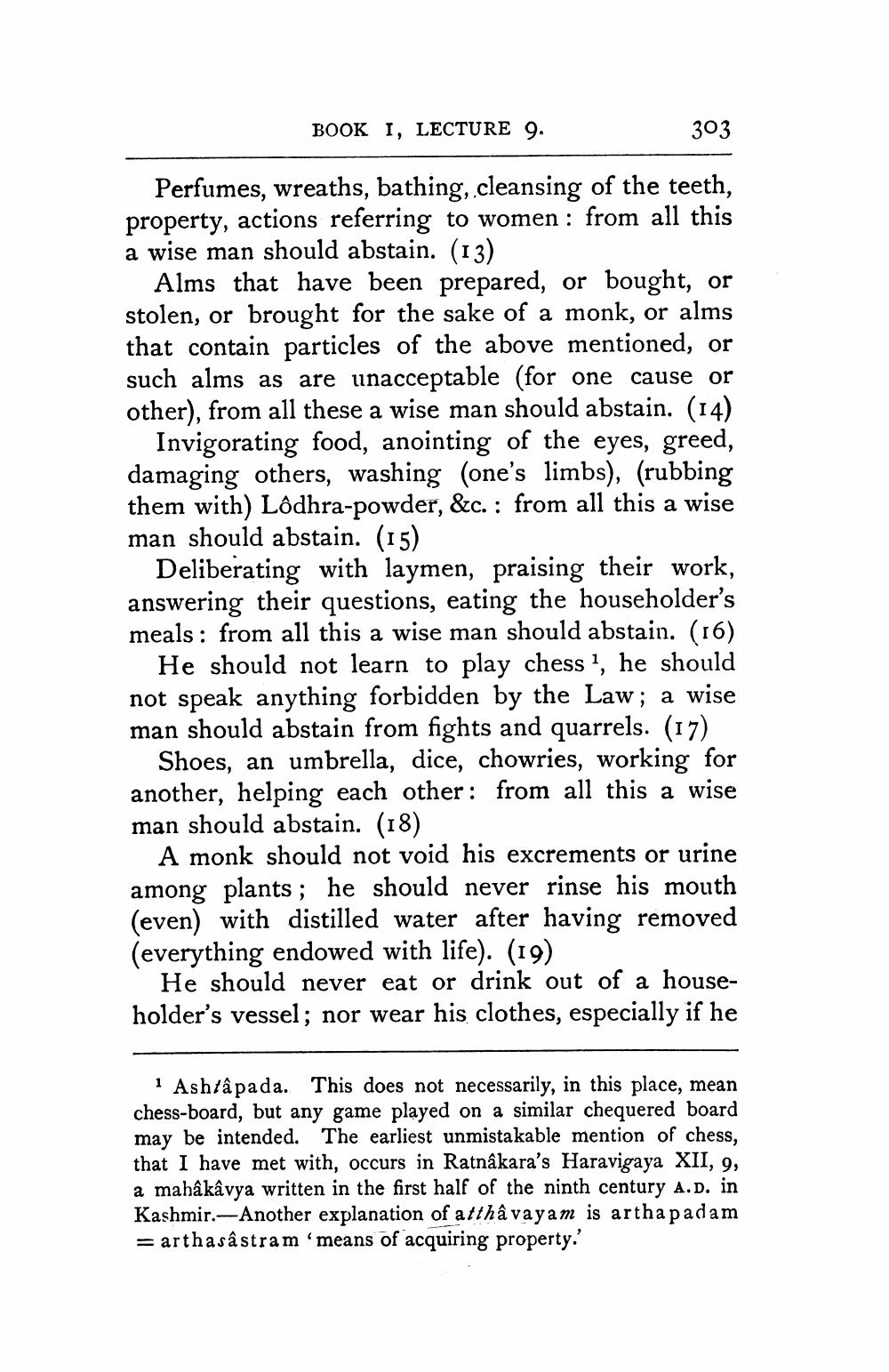________________
BOOK I, LECTURE 9.
303
Perfumes, wreaths, bathing, cleansing of the teeth, property, actions referring to women : from all this a wise man should abstain. (13)
Alms that have been prepared, or bought, or stolen, or brought for the sake of a monk, or alms that contain particles of the above mentioned, or such alms as are unacceptable (for one cause or other), from all these a wise man should abstain. (14)
Invigorating food, anointing of the eyes, greed, damaging others, washing (one's limbs), (rubbing them with) Lôdhra-powder, &c. : from all this a wise man should abstain. (15)
Deliberating with laymen, praising their work, answering their questions, eating the householder's meals: from all this a wise man should abstain. (16)
He should not learn to play chess 1, he should not speak anything forbidden by the Law; a wise man should abstain from fights and quarrels. (17)
Shoes, an umbrella, dice, chowries, working for another, helping each other: from all this a wise man should abstain. (18)
A monk should not void his excrements or urine among plants; he should never rinse his mouth (even) with distilled water after having removed (everything endowed with life). (19)
He should never eat or drink out of a householder's vessel; nor wear his clothes, especially if he
1 Ashtâpada. This does not necessarily, in this place, mean chess-board, but any game played on a similar chequered board may be intended. The earliest unmistakable mention of chess, that I have met with, occurs in Ratnakara's Haravigaya XII, 9, a mahâkâvya written in the first half of the ninth century A.D. in Kashmir.—Another explanation of atthâ vayam is artha padam =arthasâ stram 'means of acquiring property.




